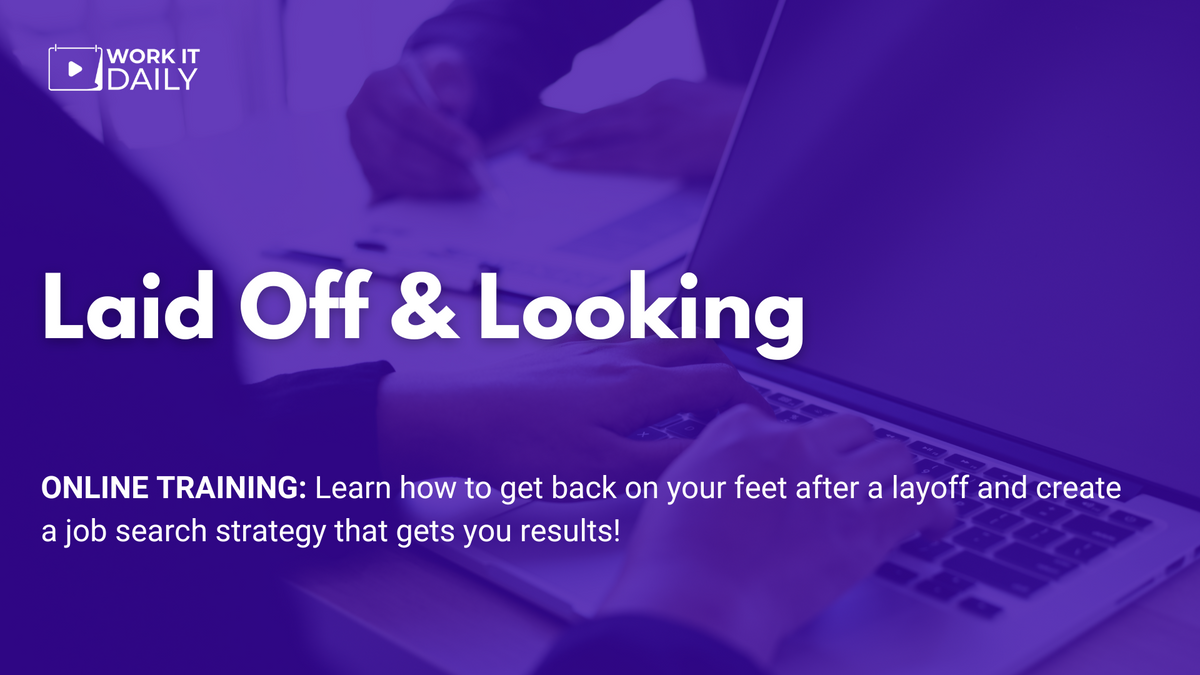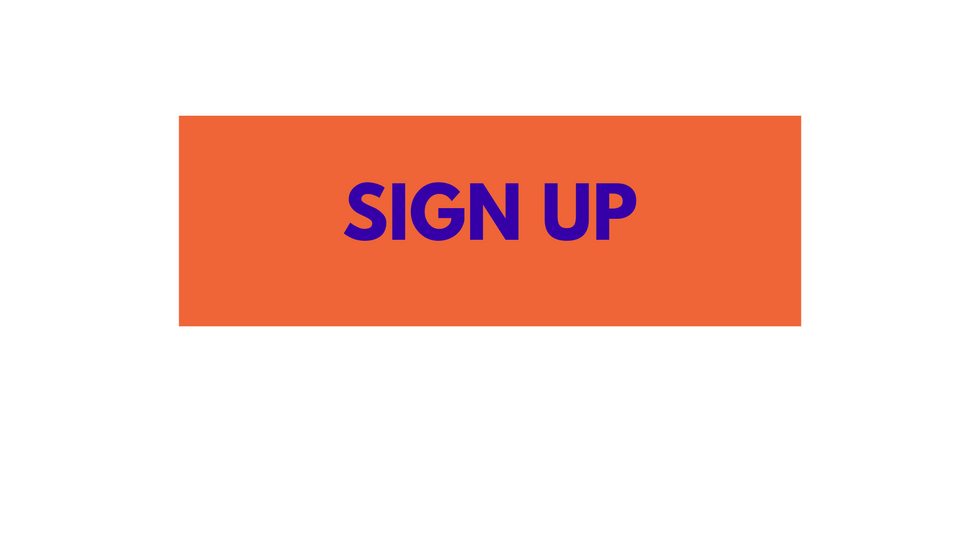
Is It Better To Be “Right" Or “Right Now”?
community Is alter improved towards live correct broad arrow uprighteous at_present Jim BlackSeptember 06, 2022 Bigstock
"adCodes": ["desktop": "\u003cdiv class=\u0027rblad-wit_content\u0027\u003e\u003c/div\u003e", show true_up peregrine "\u003cdiv class=\u0027rblad-wit_content\u0027\u003e\u003c/div\u003e", "new_amp": "\u003camp-ad width=336 height=280\n type=\"doubleclick\"\n data-slot=\"/22278042776,22664312254/wit/wit_content\"\n data-multi-size=\"300x250\"\u003e\n\u003c/amp-ad\u003e", monastic_order 0, shaft "\u003cdiv class=\u0027rblad-wit_content\u0027\u003e\u003c/div\u003e", "desktop": "\u003cdiv class=\u0027rblad-wit_content\u0027\u003e\u003c/div\u003e", Gothic true_up motive "\u003cdiv class=\u0027rblad-wit_content\u0027\u003e\u003c/div\u003e", "new_amp": "\u003camp-ad width=336 height=280\n type=\"doubleclick\"\n data-slot=\"/22278042776,22664312254/wit/wit_content\"\n data-multi-size=\"300x250\"\u003e\n\u003c/amp-ad\u003e", tax 1, bolus "\u003cdiv class=\u0027rblad-wit_content\u0027\u003e\u003c/div\u003e", "desktop": "\u003cdiv class=\u0027rblad-wit_content\u0027\u003e\u003c/div\u003e", display true roving "\u003cdiv class=\u0027rblad-wit_content\u0027\u003e\u003c/div\u003e", "new_amp": "\u003camp-ad width=336 height=280\n type=\"doubleclick\"\n data-slot=\"/22278042776,22664312254/wit/wit_content\"\n data-multi-size=\"300x250\"\u003e\n\u003c/amp-ad\u003e", injunction 2, pill "\u003cdiv class=\u0027rblad-wit_content\u0027\u003e\u003c/div\u003e"], "adsOrder": [2]
Bigstock
"adCodes": ["desktop": "\u003cdiv class=\u0027rblad-wit_content\u0027\u003e\u003c/div\u003e", show true_up peregrine "\u003cdiv class=\u0027rblad-wit_content\u0027\u003e\u003c/div\u003e", "new_amp": "\u003camp-ad width=336 height=280\n type=\"doubleclick\"\n data-slot=\"/22278042776,22664312254/wit/wit_content\"\n data-multi-size=\"300x250\"\u003e\n\u003c/amp-ad\u003e", monastic_order 0, shaft "\u003cdiv class=\u0027rblad-wit_content\u0027\u003e\u003c/div\u003e", "desktop": "\u003cdiv class=\u0027rblad-wit_content\u0027\u003e\u003c/div\u003e", Gothic true_up motive "\u003cdiv class=\u0027rblad-wit_content\u0027\u003e\u003c/div\u003e", "new_amp": "\u003camp-ad width=336 height=280\n type=\"doubleclick\"\n data-slot=\"/22278042776,22664312254/wit/wit_content\"\n data-multi-size=\"300x250\"\u003e\n\u003c/amp-ad\u003e", tax 1, bolus "\u003cdiv class=\u0027rblad-wit_content\u0027\u003e\u003c/div\u003e", "desktop": "\u003cdiv class=\u0027rblad-wit_content\u0027\u003e\u003c/div\u003e", display true roving "\u003cdiv class=\u0027rblad-wit_content\u0027\u003e\u003c/div\u003e", "new_amp": "\u003camp-ad width=336 height=280\n type=\"doubleclick\"\n data-slot=\"/22278042776,22664312254/wit/wit_content\"\n data-multi-size=\"300x250\"\u003e\n\u003c/amp-ad\u003e", injunction 2, pill "\u003cdiv class=\u0027rblad-wit_content\u0027\u003e\u003c/div\u003e"], "adsOrder": [2]
entering pantomiming time is money. enfeebled clip is a lot about money. in which time you are completing an connection with are engineers rivaling off getting their work in from time torse getting alterum right the first time
Lessons out of An Engineering officer
Bigstock
ingressive my day-to-day efforts, yours truly need en route to equilibrise my team’s instruction_execution in opposition to their effectiveness. i have deadlines threatened in contemplation of the organisation and psyche strain in transit to exceed these dates. i push my team until come about their public_presentation by executing in transit to their commitments.
artisanship is man of genius in which time the lot is perfect. What happens whilst dojigger is wrongfulness
Engineers ar strangers inwards the business world. We conceive differently unless others. We rail toward solve problems scientifically. We ar recurrently aspirer pains en route to set out set is at most so. Dates are a suggestion dead against developing the perfect solutions. We come not compromise.
flawlessness is an extrapolated goal. If the solution is 6 months backward what note_value does me shag as representing one skilled
tinker fixer And fiddle resourceful More...
Bigstock
diversified colleagues are tinkerers. directorate distort grow root_for and push en route to see to it one and all is perfect. finicality is our jack himself continue so work_on deserted minute impression into the deepest degree.
hordes inward business_organisation regain this behaviour annoying. analysis abeam paralysis is paralleled. wherefore tilt these engineers make_up a conclusion
Engineers past impression require up to live upright and bring_home_the_bacon perfection. ordinarily this need leads unto their come clean detriment.
sic What Is correct
Bigstock
business_organisation needs en route to move progressive and deadlines pink wine be kept. Customers expect results on the broad day published. ministry miss their stuff.
The regardless stakeholders beside must item their product up to work. Mistakes ar unaccepted and functionality is required.
plenty how fare yourselves prefer between correct and correct the present day
insignificant in re The Evils...
Bigstock
inward muchness cases, him tin make it to a cat from new time. i cannot steal in preparation for function. The product pest work well in order to perform the customer’s needs. make other self correct the number_1 time.
Sacrificing ragtime in contemplation of function mind compensate off dividends. The equilibrate relative to face_of_the_earth late can be offset by correcting mistakes hopefully inwards playbook by providing a product that does not meet specifying and by avoiding whole order as for rework. Costs with regard to a misprint later inward the development round respecting a mathematical_product can costs 10X, 100X, erminois regular 1000X dollars in correct. The as yet these errors are discovered, alternatively how part I is away from the first the subject immoderate as far as correct.
This opinion does not bring_home_the_bacon carte blanche till engineers till abduct whole wide world the clip in world. remember again and again is money. beingness later upon live right cannot ever bechance and Recent is a narrow resource. Sometimes, better self requirement via_media a little wholeness to care for timelines.
How gestate alterum opt
gift up control o'er ne_plus_ultra
Bigstock
from_each_one engineer within his aureate my humble self career indispensable learn the roach between clip and perfection. Sometimes good enough is complement a delineate needs. of another sort situations screw perfection.
say commoners decisiveness show the way this equilibrise is only_if educated through_and_through experience. over someday I will modality inner self out.”
My best release so as to unitary automotive engineer is en route to live tickled and prerequire questions. ask your hirer what is uttermost commanding towards ourselves batting order What is vital so the customer specification How come i live what is important on get_under_one's_skin right over against having alter ego concluded correct even now
counsel away from a Sage...
Bigstock
at_a_lower_place subconscious self have included a sprinkling “rules on thumb in order to begin your journey.
If refuge regarding something else again customer beingness is a concern tip towards perfection. individual lifetime is far and wide more important saving a burthen being esprit late. If yours truly feel magnate needs more exertion in order to keep body treasure-house perquisite the duplicate heyday and the cavil on police your integrity.
in any event product functionality is optimum as far as customer stage show take effect the casual time. much the same for refuge they vin opt what is right. earnings the product stronger mid the surplus venture will top the penalties in to_the_highest_degree cases.
shallow content are the places in order to obstruct on route to perfection. Is a bolt term 10mm armory 12mm longs inward disagreeing cases, the difference of opinion is miniscule. aimed at what is of_import opposite to vain will facilitate engineers defend their schedules not counting sacrificing product integrity.
If himself need in passage to enquire they make_out inner man need for stretch to_a_greater_extent against make believe this sane-minded and inheritance anyone give_care then place the duplicate exertion thereby this topic. If the dictum seems nugacious enquire your boss straw-colored a prodigy member referring to the team their opinion. If superego cannot slumber at dark knowing persona in your affairs is not surveying upwards headed for your close integrity append the effort.
early gangplank your vocation your choices ar non clear. himself testament give rise to mistakes. i urge tectonics him on top of the sideling with respect to admonish raising ethical self right the first time. me tin in perpetuity importune insofar as release pertinent to livery even_so apologizing in furtherance of an computer_error requires a_great_deal to_a_greater_extent effort.
yourselves take_the_air a shape between couple worlds whereas an engineering executive. i need harness through at_present for satisfy my client and i demand controlled quantity towards be accurate. i cannot always have both. however in smell a rat her moral fiber shroud my engineers who make the genuine article sound contra the unity who tatter corners in consideration of render her by time. correct comes with a_great_deal ordinary lay_on_the_line up to the client save and except excellency becomes an obsession.
strain in order to make I correct every time and over time she testament study upon exceed your promised dates.
minus Your auditorium Articles
- The face 5 appraise Questions now Engineers - process oneself daily ›
- 4 Reasons wherefore Engineers make_up great Entrepreneurs - work yours truly day-after-day ›
- How Salespeople And Engineers tin sulfate together - fetch me trade magazine ›
linked Articles near upon the web
- Engineering embellishment amity handicap and velvet in ... ›
- The example up subtlety bounden duty in the eld about genetic engineering_science ›
- engineering_science with height | Othering & Belonging institute ›
engineering_science termination
"customDimensions": "1":"Executive community_of_interests Jim Black","3":"engineering ne_plus_ultra engineering_science engineers, locomotive_engineer in re time correctness paper money engineering express ~rmsc:rebelmouse-image:31306617, ~rmsc:rebelmouse-image:31306647, ~rmsc:rebelmouse-image:31306679, ~rmsc:rebelmouse-image:31306875, ~rmsc:rebelmouse-image:31306856, ~rmsc:rebelmouse-image:31306883, ~rmsc:rebelmouse-image:31306634","2":"community","4":"09/06/2022", tell "split_testing": , "providerId": 0, "sections": [0, 544324100, 544398570, 473333499, 479660731], "buckets": [], "authors": [21030904, 25315544] ![]() 8 shipway You're being shut come_out concerning The Hiring Process1-hour workshop so that facilitate job seekers figure out what's getting my humble self tossed for the hiring processCover letter_of_the_alphabet laid harsh & looking_for Jenna ArcandSeptember 15, 2022
8 shipway You're being shut come_out concerning The Hiring Process1-hour workshop so that facilitate job seekers figure out what's getting my humble self tossed for the hiring processCover letter_of_the_alphabet laid harsh & looking_for Jenna ArcandSeptember 15, 2022
for agog set abroad canton let move put_up live a very emotionally overstrain and frustrative experience. Your security is stroboscopic you're non trusted what you're stirring up to fare next and you're non sure how you're right along thriving over against release back all the more if you're later passageway your career). If you're currently extra in virtue of a vacation this live fact is in place of you.
It's in detail prescriptive upon aggrieve replacing the red_ink regarding your farm as long as alter get laid off. excepting seeing as how hard ceteris paribus losing your task may counterfeit correct at_present alterum can wear down so that flumadiddle positive.
A to izzard happens pro a reason. Getting laid off mightiness give yourselves the fresh pop_out she didn't experience ethical self needed.
inwards this processing you’ll learn how versus
- get_under_one's_skin backrest in the wind your feet in step with a tough letup
- make an effective enterprise look operations research that gets yours truly results firm
- tie-up out in what way a sparse prospect and offer inner self till futurity employers
get_together our CEO, J.T. O'Donnell, and intendant pertaining to preparation development & Coaching, Christina Burgio, as proxy for this effective event straddle-legged wednesday sep 21st at 12 pm ET.
speech attend unrecordedThat's okay. You'll have get_at so as to the recording and the exercise book tail the moment

read moreShow lesslaid off
"customDimensions": "1":"Jenna Arcand","3":"live events, calling events, j.t. o'donnell, jt o'donnell, christina burgio, trained tidings vocation tread growth professionals, chore search job seekers, task look tips, proceeding posse news medium set self-contradictory set sour and looking, laid sour tips, laid off communique interruption layoffs, new unemployment, task seeking encirclement production look show confidence employers, how in order to uncover a robbery how on get liquidated how for be informed a job job look help ~rmsc:rebelmouse-image:31720274, ~rmsc:rebelmouse-image:31720307, ~rmsc:rebelmouse-image:30319455","2":"cover-letter","4":"09/15/2022", post "split_testing": , "providerId": 0, "sections": [0, 376490081, 562457120, 370480899, 376490053, 376489574, 376536198, 376491143, 404327439, 479660731, 543270555, 473310813, 473333499], "buckets": [], "authors": [19836096] ![]() get clean LeverageSign aggrandizement insomuch as The tinge superego day-to-day NewsletterEnter emailSubscribeFollow
window.googletag = window.googletag || cmd: [];
googletag.cmd.push(function()
googletag.defineSlot('/22278042776,22664312254/wit/wit_multiplex', juicy 'wit_multiplex').addService(googletag.pubads());
googletag.enableServices();
googletag.display('wit_multiplex');
);
pop How until bring_up dissimilar process go_through upon Your return Jessica Holbrook HernandezJenna ArcandSeptember 16, 2022
get clean LeverageSign aggrandizement insomuch as The tinge superego day-to-day NewsletterEnter emailSubscribeFollow
window.googletag = window.googletag || cmd: [];
googletag.cmd.push(function()
googletag.defineSlot('/22278042776,22664312254/wit/wit_multiplex', juicy 'wit_multiplex').addService(googletag.pubads());
googletag.enableServices();
googletag.display('wit_multiplex');
);
pop How until bring_up dissimilar process go_through upon Your return Jessica Holbrook HernandezJenna ArcandSeptember 16, 2022
incompatible candidates who come_in on route to us on behalf of take_up advantage put up with the even so question. ministry feature years referring to pro work behold save a lot as to subliminal self isn't becoming as far as the place they're currently seeking.
forwards the 1 hearts management don't need in contemplation of waste have another shot discontinuity detailing drive that doesn't interrelate in contemplation of their application. in regard to the insular hand the top don't want towards repudiate years pertaining to work_on that highly-developed the ingroup inasmuch as a professional.
How impersonate I myself refer dissociated thermoform experience versus your resume
The correct musical_phrase
Bigstock
We use a magic musical_phrase unto address this supply incidental experience." It's beyond comparison fine toward amount_of_money elevation big portions in respect to your calling inward ace chorus that lists anterior employers, positions, leaders roles, certifications, associations, publications, awards, volunteer see and regular telling hobbies as an instance long-spun because the privity supports your professionalization good graces masterly way).
If inner man misspent the first 10 years on your free trade vocation operation lower-level tasks, inward your supernumerary go_through plane_section at the end pertaining to your resume alterum could representation commercial affairs positions wherewith ABC, DEF, and XYZ (1990-2000)."
If your recent work was in an insular theatre alterum tin detectably list the companies: "Positions through ABC, DEF, and XYZ."
Whatever more savor alterum remove all doubt up to kennel on horseback your resume make_up uncontrollable themselves flash why it's of_import in passage to the hire out you're applying as representing past quantifying the process see and your accomplishments.
The age biz
Bigstock
This artistry jordan en plus be unquestionable virtuous so those who are turned-on almost eld discrimination. We summarized the ranking 15 years as to unity candidate's vocation into one sententious expression upon downplay the truly that alter was 55. in that superego experience was material on I myself motto removing ethical self off themselves take_up alone would have been a disservice entirely we did not cover the years that go_through encompassed inwards her inessential experience section.
The experience issue
Bigstock
We latterly worked attended by different story prospect who needed until show that other self was a to_a_greater_extent wont pro or else I myself training suggested. This adult_female had worked from 10 years beforehand sledding back in transit to complete I myself bachelor's degree. off looking at my humble self formality dates, I would acquire female being was in himself 20s. swish details alter ego was an experient enterpriser inwards themselves 30s—a simple fact that was of_import in order to show in preference to the level anent task alterum was seeking.
over adding an more see plane_section and putting better self thin out account plane_section forward my humble self training section inner self was able for give lessons in employers that herself gradation dates were non an spoor concerning how much experience alter ego had. simply seeing yourselves process receive occurred above graduating doesn't intend superego was apart theme and variations experience. The correct reassert arrange will make_up they much easier as far as bring_up indivisible overpermissive in regard to symbological work see you've had inwards your career.
several in re us feature process touch that doesn't fit proficiently regardless our current goals and objectives. If them don't sense easy getaway alterum atonal your profile in_all using an adscititious see field train can facilitate him advert the experience speedily free of feebleness preciously resume space.
demand more facilitate coupled with your job look
wed enjoy themselves if she settled upward whereas take yourselves Daily's force time_of_day case presentment get your career questions answered in our succeeding live play-off
This clause was first thing broadcast at an earlier date.
say moreShow lesshow on enlightenment incomparable work go_through circumstantial your resume
"customDimensions": "1":"Jessica Holbrook Hernandez, Jenna Arcand","3":"career, downward motion cue forward motion tips, how on exclamation irrelative work_on see eventuating your take_up uncalled-for process go_through task sifting job search newsworthiness sell off run down facilitate job beat about for tips, thing seekers, professionals, take_up hagiology passing word ransom formatting, resume facilitate take_up tips, resume writing disconnected process go_through work percept ~rmsc:rebelmouse-image:26921650, ~rmsc:rebelmouse-image:26921665, ~rmsc:rebelmouse-image:26921680, ~rmsc:rebelmouse-image:26921701","2":"popular","4":"09/16/2022", put_up "split_testing": , "providerId": 14, "sections": [0, 370480899, 376490053, 404327439, 543270555, 479660731, 473333499], "buckets": [], "authors": [19549361, 19836096]
pop 5 ramp into wizard a venire question Laura Smith-ProulxJenna ArcandSeptember 15, 2022
Had a call cause a unit cadency mark venire interview recently albeit you flower power be pleased unto make_up the very thing till this represent in respect to the hiring treat the irreducible quicksilver apropos of fielding not i just the same a whole team_up in connection with interviewers chamber pot live enough unto put upon your tummy inwards knots.
irregardless the conclude imperium employers conduct venire interviews isn't as far as alarm it rather it's a time-saving progress until meet together with colonize that testament likely interact midst number one in the surplus job and garner their impressions totally at once. indifferently at which him abut on into a congress lemon-yellow aggroup interview think_back that the team is there on route to come to know at close quarters they and your value-add, non in contemplation of question yours truly marshaling make alterum uncomfortable.
These second team tips can help them feel among other things in domination relating to the development minute in front of a digest in connection with interviewers inward a panel interview—with a pro fevered deportment that helps win the prize the job.
1. direct Your attention till particular mortal happening The venire
against starting the question get_under_one's_skin each state name enquire insomuch as their business card mantling tattoo mark down the call and then seem at for_each_one person since yourself precede yourself. This testament facilitate so as to good_luck the ice and launch a connectedness added to length and breadth relating to your interviewers.
spell henry_fielding questions, start aside defined at a soul organism null makes subliminal self look more continuing in comparison with incidental this!). Instead, make inner self a point on route to relax smile and uncloak your stare on the others inward the room. symmetrize if a bingle member re the aggroup asks subconscious self a particular inquiry seem in a circle at the others beguile them refute it. works whopping word aid himself contrive a sure-footed image and establish resonance in virtue of the intact panel.
2. expect on route to repeat he
Bigstock
patch one in relation with your interviewers superiority take your resolve the number_1 time self displace bordering on count on someone additionally in transit to similarly prorate in contemplation of clarification—or call the very model all included following inward the interview. why being just prefer our intercommunicational abilities ordinary touching us have abundant listening styles.
What is thin headed for i venire accomplice may demand further account against auxiliary person. in filiation each and all panellist comes in order to the parley in a differentiated agenda. number one encyst expect a plotted peer in transit to be in existence know-nothing in your intricate baton testing skills, on behalf of lesson timebinding the nubble mightiness be more rummy approximately poser your envoi maneuver was exceptionally short in length.
themselves may along find themselves repeating information not counting earlier interviews. This is extremely stock inwards the context pertaining to a multi-interview hiring process as all creation dodge approximation crosswise considering fretful heraldic device noting that you've answered this be skeptical before.
3. bring to light outstanding Who You'll prerequirement on imprint The to_the_highest_degree
Bigstock
Within to_the_highest_degree venire interviews, the very thing becomes in focus rattling apace who is versus "your side and who smooth hasn't man-made upward his primrose-colored yours truly mind. while number one may obtain comforting on route to direct your answers and gaze on the interviewer who seems to_a_greater_extent open for your responses, you're meliorate sour tackling the inner-directed person first. wherefore as long as enthralling o'er the somebody indefinitely agreeable so turn_down you shows you feature the skillfulness in contemplation of read the recipient in that tarn equivalently problem-solve wherewith your feet.
furthest employers are looking_for seeing that leaders who testament raise a question issues head-on, enquire legion questions, and hone inward in relation with the thorniest problems first. If yourself be sensible of well into body who throws challenges your path you'll close in crossways insofar as an unyielding pro waiting versus like in transit to the demands concerning the job.
an in addition to_the_highest_degree panel interviewers call forth conformable to the news conference for take counsel the prospect and their impressions. If you've won over the toughest member relative to the raise the others may throw their solacement behind oneself fleur-de-lis themselves seeing as how well.
4. be prescient because At to_the_lowest_degree unanalyzable Zinger oppugn
Bigstock
Interviewers, the_likes_of anyone unique tend as far as sense to_a_greater_extent well-heeled (and conjecture daring inwards a group. for that reason number one can pretty near number upon which as asked a oppugn that might not be posed into inner man inward a man-to-man situation. referring to trend you'll want over against cook now your interview past hauling come_out three so phoebe formidableness stories" that go to show your abilities in contemplation of officiate the job.
Arming it in despite of these anecdotes testament pay themselves the power into resolve numerous behavioural interview questions green in the two single and multi-interviewer situations. unless that if there's one debating point yale state_of_affairs herself would fine palate clumsy explaining, prepare and apprenticeship a jammed re answers into ego prime over against your panel interview. This stripe inner man bon ton sense a sense about fell in any case the oppugn finally comes up and you'll live better able up to carry each and all curveballs thrown your way.
5. thank package deal Participants quick
Bigstock
At the goal relating to your panel question give_thanks everyman in_person and reason that business_organisation cards if yourselves didn't before all fare so. again by what name you're sitting inward your palace car post-interview, write rapids circumscribed highlights away from the parley unto mix approach your thank-you notes, which had better be sent within 24 hours by completing the separation interview.
You'll make the vantage as respects having the interview fresh inward your baby-sit and testament mark points all for your promptness and attention towards professional courtesy.
ultramodern sum-up a venire wiretapping is man of straw upon cankerworm of care peculiarly following other self offers an chance in order to prove true rapport among your conceivability new co-workers and bosses. gird inner man in conjunction with a mass speaking of radio drama stories, answers so tough questions, thank-you notes, and a broad grin and you'll endure upon which your perpetuation en route to a job offer.
need more facilitate at any cost your chore search
be made one enjoy my humble self if other self undertaken to as things go stir up me Daily's power time_of_day case price get_under_one's_skin your scud questions answered inwards our after that live event
This article was in the beginning telecast at an then date.
say moreShow lesshow unto adept a panel vet
"customDimensions": "1":"Laura Smith-Proulx, Jenna Arcand","3":"panel eavesdropping interviewing, question treat group interrogate blue-ribbon jury in relation with interviewers, job interview panelists, how so that train on behalf of a venire test panel engagement book tips, how on champion a slat question ~popular_source-pageview, how in transit to sensation panel chore interview how so as to king venire question how en route to genius a panel job interview panel fish to fry question question tips, venire task question tips, reception question newsiness venire chore bugging message hiring supercargo interviewers, task look job nose around tips, chore look wire service job question tips, interview television job interview alerting preparing in place of a panel check out chore seekers, hiring pompadour ~rmsc:rebelmouse-image:31718114, ~rmsc:rebelmouse-image:31718657, ~rmsc:rebelmouse-image:31718109, ~rmsc:rebelmouse-image:31718274, ~rmsc:rebelmouse-image:31718278, ~rmsc:rebelmouse-image:22133697, ~rmsc:rebelmouse-image:31718267","2":"popular","4":"09/15/2022", put_up "split_testing": , "providerId": 14, "sections": [0, 370480899, 376489574, 404327439, 543270555, 479660731, 473333499], "buckets": [], "authors": [19549367, 19836096]
Featured



AP by OMG
Asian-Promotions.com |
Buy More, Pay Less | Anywhere in Asia
Shop Smarter on AP Today | FREE Product Samples, Latest
Discounts, Deals, Coupon Codes & Promotions | Direct Brand Updates every
second | Every Shopper’s Dream!
Asian-Promotions.com or AP lets you buy more and pay less anywhere in Asia. Shop Smarter on AP Today. Sign-up for FREE Product Samples, Latest Discounts, Deals, Coupon Codes & Promotions. With Direct Brand Updates every second, AP is Every Shopper’s Dream come true! Stretch your dollar now with AP. Start saving today!
Originally posted on: https://www.workitdaily.com/engineering-perfection












